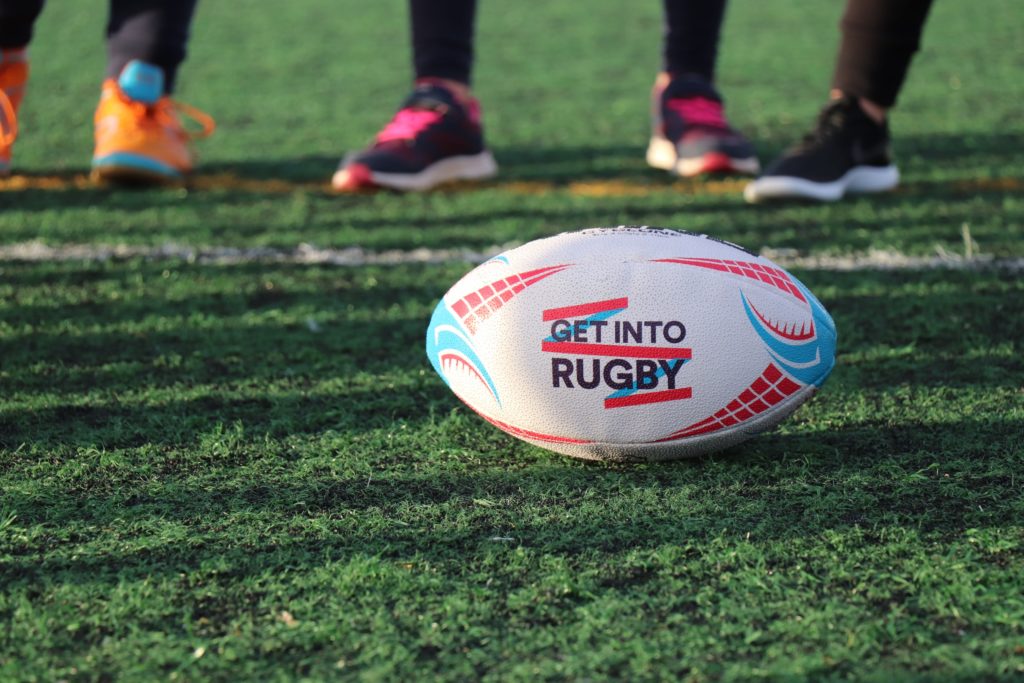
Rugby is an international game developed in the 1800s in England. The game has gained huge popularity in various countries, including South Africa, Kenya, Australia, America, and Europe. Rugby is a great sport to improve confidence, physical and mental health, whether played competitively or recreationally.
In this article, we’re going to discuss the various benefits of playing rugby so you can understand why rugby is the best sport in the world.
Without delay, let’s dive in!

How is playing rugby beneficial for kids?
Kids playing rugby enjoy several physical, social, and mental skills, which will bode well with them as they approach their adulthood and beyond. It also promotes teamwork, keeps kids out of mischief, and boosts the concentration level of a child.
Furthermore, rugby offers kids- whether small or large, slim or heavy, short or stout, agile or speedster- equal opportunities to run with the ball, pass it, and play defense. In rugby, everyone needs to participate that way; nobody gets left out.
Although it has been widely debated in media whether rugby is dangerous for kids, experts believe it’s the best discipline parents can offer to a child or teachers can offer to students. In rugby, games where kids are between the age of 5 to 9, there is no contact. Touch or flag rugby is often played.
Between the age of 9 to 11 years, kids are taught how to tackle and to get into contact, but it doesn’t become a tackle sport until they’re in high school. Additionally, rugby rules for kids promote safety across sports in general.
Physical benefits of rugby for students
Since rugby is a physical sport, it comes with many health benefits. But before we can look at the physical benefits of rugby, you need to understand that students require a high GPA to compete in various rugby leagues.
In a way, this is a benefit to students since it encourages them to achieve good academic performance. However, if you have problems completing certain college assignments because of your training, you can always seek professional assistance from the UK essay writing service Writix. It’s always ready to help you complete your research paper and essays on time. Furthermore, you receive quality custom work at a low price.
Apart from helping you to secure a high GPA to qualify for rugby leagues, assignment helps to create focus, improve practical skills, and even boost your final academic score. That said, let’s have a look at the physical benefits of rugby.
Builds strength
Playing helps to boost the upper body strength since you require strong muscular hands for tackling and throwing the ball. It also helps students to develop muscular legs because of the running and battling in scrums.
Boost flexibility
Agility is key in rugby. Players learn how to use their legs and hands to change pace and direction instantly. The continuous twisting and instant dodging improve the overall flexibility of the student.
Cardio
Enhances the body’s cardiovascular system by helping in the building of strong lungs and heart to deliver oxygen to the muscle faster and effectively. The constant running and sprinting in this game gives students good cardio workouts since they experience increase heart rate and interval training.
Increases bone density
Rugby requires players to train regularly to boost their physical fitness and mental health. Many dissertations on sports say that this regular training helps to increase your bone density because the workouts impose stress on the bones. As a result, it stimulates the deposition of calcium along the lines of stress. An increase in bone density reduces the risk of developing osteoporosis later in life.
Social benefits of rugby for students
Improves social skills and interaction
Through rugby, students will learn how to communicate new ideas, use communication to address problems collectively as a team, and listen to other individuals as part of a group. A student can even land his or her first leadership role by taking a captain title. Therefore, they get involved in an environment where communication is key.
Teaches students how to overcome bad outcome
Just like football and hockey, rugby is a game of win or lose. Although everyone wants to win, that’s not always the outcome. Sometimes teams lose. Losing in the game gives students exposure and teaches them how to get over, move on, and recover for the next game. Rugby is good for building character.
Students get to learn how to take constructive criticism from coaches and how to accept and apply them for long-term benefits.
Builds self-esteem and confidence
Rugby is the best game to build confidence in students. It achieves this through compliments, highlighting areas they’re doing well, encouragements, and rewarding them for showing improvement and success in certain areas. By having a role in the team, a student can earn respect from teammates, providing him or her more confidence and self-esteem.
Conclusion
Rugby is a highly physical game, involving the use of various body parts to obtain maximum performance. As such, players derive many physical benefits, including increased bone density, cardio, and increased strength and stamina.
It’s also a highly social sport involving many interactions between team members and coaches. Through rugby, students get to learn how to work as a team and know how to make decisions that benefit not just themselves but also their teammates.
In summary, rugby comes with numerous benefits for both kids and students. Playing rugby will be the best decision you’ll ever make in your life. Thank you for your time. Best of luck!

1 Comment
You must be logged in to post a comment Login
Leave a Reply
Cancel reply
Leave a Reply
You must be logged in to post a comment.

Champions Cup
Champions Cup semi-finals: Best head-to-head matchups




















Pingback: stapelstein balance board